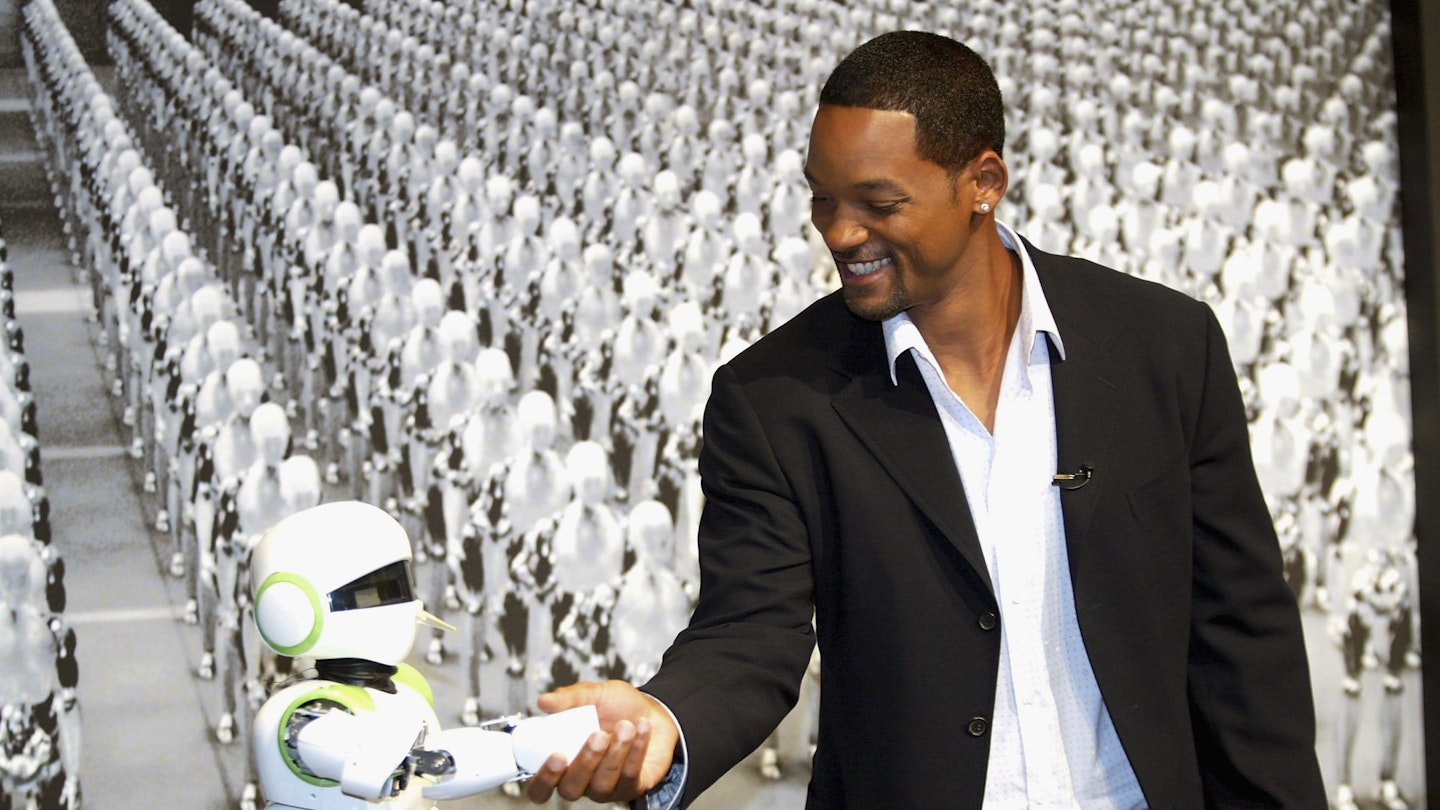No, this isn't a Will Smith film, the future has arrived. Didn’t you get the memo? Robots are now a reality and will be stealing our jobs, and no travel ban or wall is going to keep them away. For a few years, the middle classes have looked on with a smug sense of pity as low-skilled occupations have been taken over by computers. But a study from Oxford University recently warned that white-collar jobs are next in line.
Already, supermarket cashiers have been replaced by screens that freeze when you want to place an ‘unexpected’ item in the bagging area (like milk, say, or bread), driverless cars are just around the corner, and conversations with real-life call centre workers have long been replaced with an automated voice so exasperating you want to rip your own head off before you’ve heard what set of circumstances would require you to ‘press six on your keypad’.
But wait, it gets worse: artificial intelligence is now threatening careers that pay more than £40,000 too, including insurance, credit analysis and banking. So what to do? In the absence of a working knowledge of animatronics, the other option is to stay calm and think of ways to make our good human selves indispensable at work. Laura Thompson runs human communications consultancy Phenomenal Training, and has spent the past 20 years teaching top companies how to protect jobs. She advises we can safeguard our careers by making ourselves more human. She believes the key to keeping our jobs is to find the ‘un- patternable and unique human-only’ aspect of each role and to focus on the ‘4C’ skills that robots don’t have: care, creativity, curiosity and collaboration.
‘The leaders of the future will be those with the soft skills to create strong emotional connections with people,’ she tells Grazia. ‘Remain employable by identifying your job’s DNA (Do Not Automate) element. These are likely to be tasks that involve touch, eye contact, smell, gut-instinct, imagination and unique thought. An algorithm can tell us what to wear right now, but it is still a unique human job to inspire us as to what will be on trend next summer.’
.jpg?auto=format&w=1440&q=80)
Laura believes women are safer than men because they tend to do
more ‘caring’ roles, like teaching and nursing. Meanwhile, the men in Silicon Valley have scored an own goal by creating robots that make their jobs easier – and then obsolete.
‘If your answer is always “same old” to the question “how was work today?” that’s an indicator you have a job that is at risk,’ she adds. ‘If you refuse to flex your skills to adapt to the changing professional environment, you are in danger of it taking more effort to work around you as you remain fixed.’
Kassie Perlongo, managing editor of Robohub, part of Bristol Robotics Laboratory, suggests we shouldn’t be afraid. ‘It’s good to remember that robots perform tasks, not jobs,’ she says. ‘Creating robots is still very difficult. As robots continue to do more tasks in the future, let’s make use of them instead of fearing them.’
I’m still waiting for one that will go to the gym for me, collect my dry-cleaning and remember where I put my house keys. If it can do all that then, hell, it probably deserves a £40K-plus salary anyway.
Bots we can get on-board with
-
The Spot Mini is a robot dog that can climb stairs, do the washing-up and dance.
-
Alpha 2 can read to your kids and even teach you yoga.
-
A robo vacuum cleaner takes the hassle out of housework.
READ MORE: Should We Be Calling Models 'Mannequins'?
